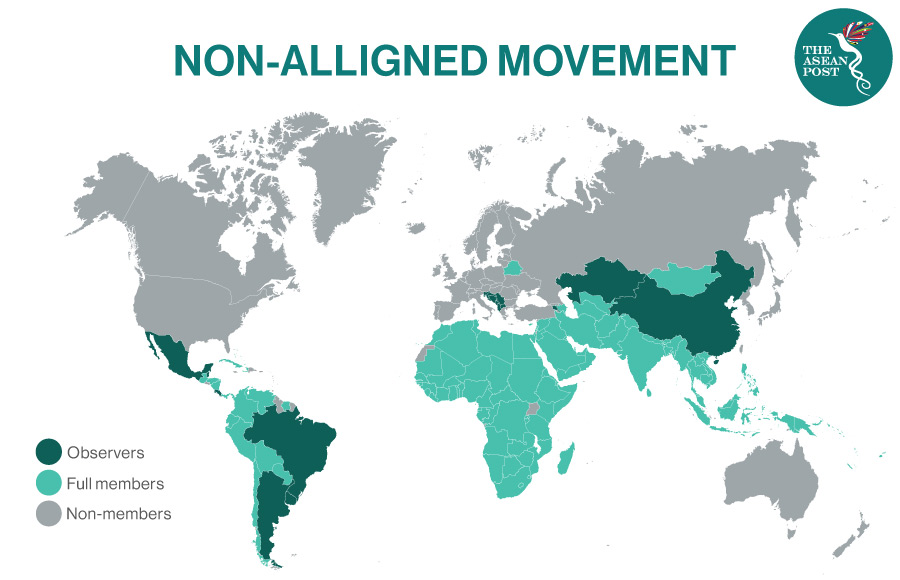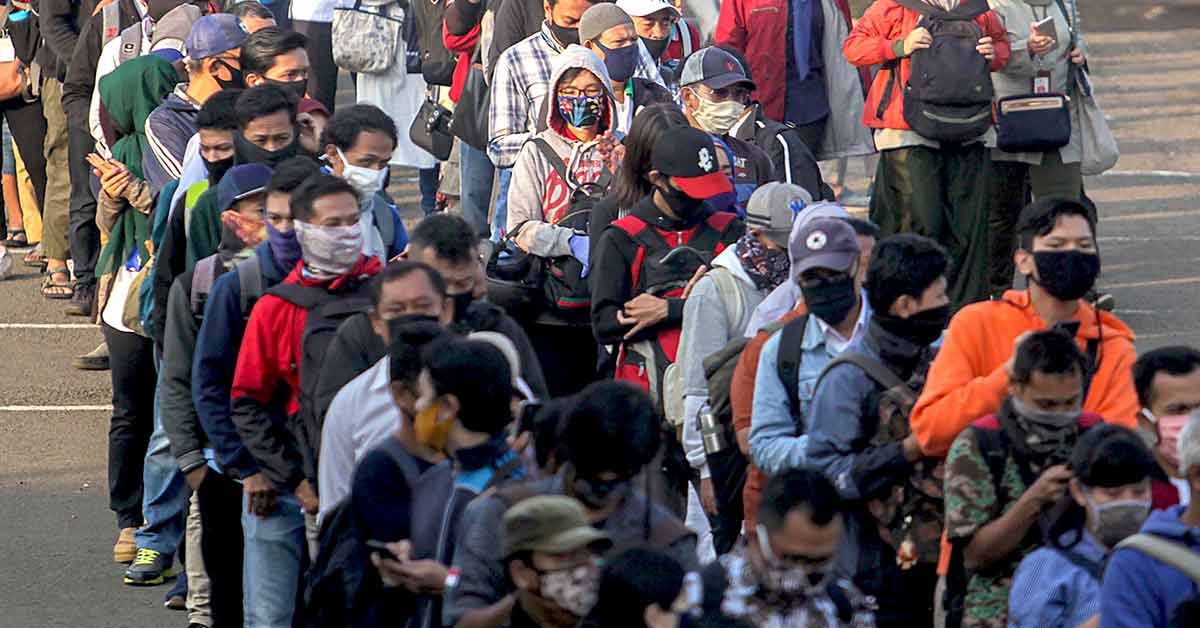The threat of COVID-19 has not prevented the international community from communicating and cooperating with one another through the “new normal” mode of interaction – video conferencing. Many organisations have resorted to this type of communication in order to maintain contact with its members. This includes the Non-Aligned Movement (NAM) which held an online summit on 4 May, 2020.
The NAM was established in 1961 in Belgrade during the post-World War II period. The Asian Relations Conference (ARC) and the Bandung Conference held years before were stepping stones for its inception. The grouping has the primary aim of eliminating any form of colonialism-imperialism and neo-colonialism around the world. As conspicuously stated in its name, its members were neither from the West nor from the Eastern bloc during the Cold War era.
After the end of Cold War, the NAM has been trying to find relevance in the current international order. The changing dynamics of state and non-state interaction at the global level has prompted the Movement to adapt to the unprecedented situation. It has gradually shifted its focus to addressing problems of third world countries in a globalised world, such as trade, development, and international cooperation.
Nevertheless, friction between the world’s two major powers, the United States (US) and China, for the last couple of years has brought back an atmosphere and fears associated with a Cold War. Observers have labelled this phenomenon as a “new type of Cold War”. Even during the COVID-19 pandemic, tensions are still underway. This situation has made the existence of NAM along with its main principles more relevant in the status quo.
Sino-American Hostility
US-China relations in recent years has been full of ups and downs. The trade war, geopolitical disputes, and technology competition have dominated their interactions. Despite their interdependence, particularly from an economic standpoint, both states continue to remain hostile to one another.
Leadership play a pivotal role as well. Xi Jinping, China’s president and leader of the Chinese Communist Party (CCP), rose to power in 2012 and his authoritarian government has proven to be a rising power in the global arena. On the US side, Donald Trump’s outspoken nature tends to reflect his administration’s foreign policy, especially on China. Both leaders are major players in current international affairs.

Their hostility to one another has expanded to a global level which involves other actors; the South China Sea dispute is one such prominent case. This ongoing conflict is set in the Southeast Asian region where all countries are members of the NAM and uphold ASEAN’s values, such as sovereignty, peaceful dispute settlement, territorial integrity, and non-interference.
However, the US and China have treated this problem as their own geopolitical battle. As one of the claimant states, China keeps pushing for its historic rights via the “nine-dash line” policy over the rest of the region. The US has responded towards China’s aggressive actions and bullying behaviour in the area with its own Freedom of Navigation policy. Recently, two US warships intentionally sailed around the spot where Chinese vessels were seen intimidating a Malaysian drill ship. This rising tension in the South China Sea has become another Sino-American stage of conflict.
Concurrently, the world is facing a difficult novel coronavirus pandemic as a common threat. Yet the COVID-19 crisis has not eased tensions between the two global powers. Many had expected that the pandemic would serve as a great opportunity for collaboration between the two major powers. Unfortunately, things have not worked out that way.
Since the beginning of this global health challenge, the US and China have both played the “blame game”. They have been arguing over the origin of the virus and accusing each other of poor governance in response to curbing the outbreak. This quarrel is unnecessary considering that the world demands international cooperation to lessen the impact of the health crisis.
Research collaboration on a possible vaccine as well as medical assistance and financial support for countries in desperate need are more crucial than a political debate between Washington and Beijing.
The NAM Against COVID-19
Under the theme of “United Against COVID-19”, the NAM arranged a summit attended by more than 40 state leaders on 4 May, 2020. Led by Azerbaijan, the current chair of NAM, the grouping focused their attentions on global solidarity to fight the novel coronavirus. The virtual meeting also initiated a task force to manage a database of member states regarding the impact of the health crisis. The data gathered will be used as a reference when requesting for international aid.
The summit which also signifies the re-emergence of NAM in global affairs is urgently needed. Moreover, the declaration and formation of a COVID-19 task force should not be the end goal. The movement needs to go further by strengthening their multilateral ties amid the “new type of Cold War” which has progressed to another level. The US-China contention is not merely a bilateral issue, but has also affected international communities.
The COVID-19 debate has led to the US halting its funding for the World Health Organization (WHO) on the grounds that the WHO was not able to manage the early outbreak properly and allegedly pandered to Chinese interests. Many observers have predicted that the US’ decision could harm vulnerable groups such as developing countries the most which rely on the WHO for assistance. In addition, the US is the biggest donor for the WHO, contributing US$893 million, which accounts for 15 percent of the organisation’s total budget for 2018-2019.
Under developed countries are also in critical condition as a result of the pandemic with 75 percent of their citizens having lack of access to water and soap which are essential to prevent the spread of the deadly virus. This illustrates how the US-China spat could indirectly cost millions of lives around the globe.
The COVID-19 crisis presents a golden opportunity for the NAM to reorganise and develop new goals and objectives in line with the needs of its member states caught in the crossfire of a US-China confrontation that has been exacerbated by a deadly global pandemic.
This “new type of Cold War” should revive the principles of NAM established by its founders, such as independence, self-determination, non-interference, and peaceful co-existence, as these values are needed to maintain solidarity among its member states.
Related Articles:

